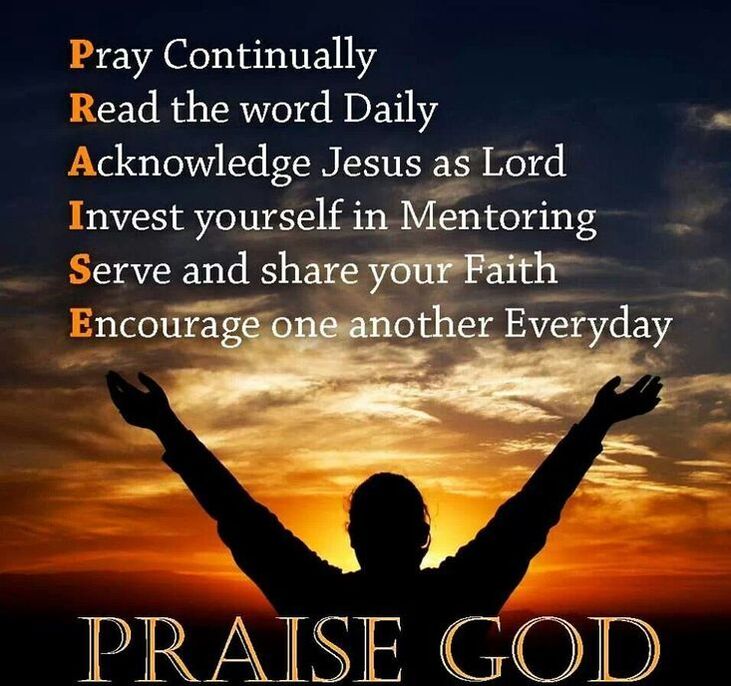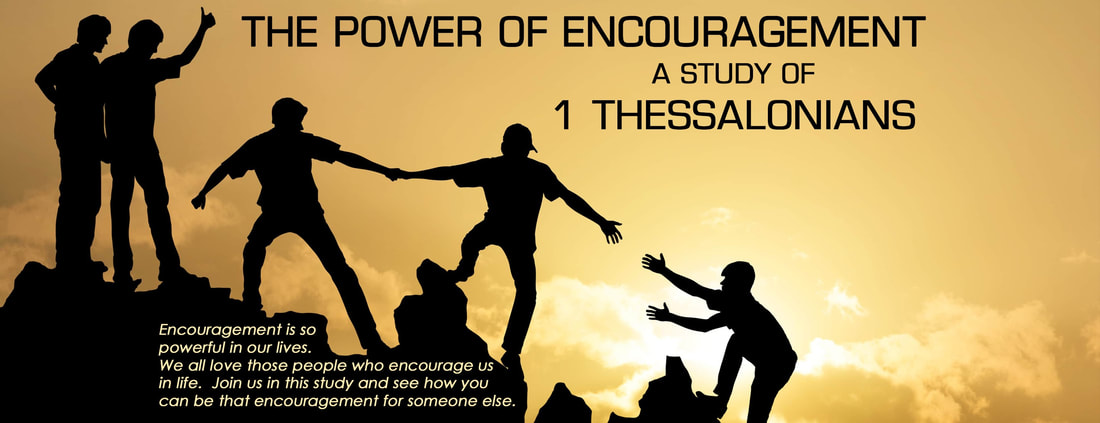|
Background Story:
Jesus has been healing and delivering people everywhere He went. As His fame has grown, so have the crowds that followed Him. Jesus entered Jericho and was passing through. 2 A man was there by the name of Zacchaeus; he was a chief tax collector and was wealthy. 3 He wanted to see who Jesus was, but because he was short he could not see over the crowd. 4 So he ran ahead and climbed a sycamore-fig tree to see him, since Jesus was coming that way. 5 When Jesus reached the spot, he looked up and said to him, “Zacchaeus, come down immediately. I must stay at your house today.” 6 So he came down at once and welcomed him gladly. 7 All the people saw this and began to mutter, “He has gone to be the guest of a sinner.” 8 But Zacchaeus stood up and said to the Lord, “Look, Lord! Here and now I give half of my possessions to the poor, and if I have cheated anybody out of anything, I will pay back four times the amount.” 9 Jesus said to him, “Today salvation has come to this house, because this man, too, is a son of Abraham. 10 For the Son of Man came to seek and to save the lost.” Read Luke 19:1-10 Big Idea: Don’t let distractions keep you from Jesus. One thing is for sure…life is full of distractions and obstacles. You start your day with good plans and then BAM, something happens and your plan is totally disrupted. In this story of Zacchaeus, we see a man who was apparently super short. Jesus was nearby and Zacchaeus wanted to see Him but his height and all the people around him were obstacles. To not miss Jesus, this grown man decided to climb a tree. So often when obstacles come in our lives, it can be easy to use them as an excuse to not spend time with Jesus. You might have had an argument, made a poor decision, or are totally stressed out. Don’t let those obstacles prevent you from your encounter with Him. Isaiah 26:3 says, “You will keep in perfect peace all who trust in you, all whose thoughts are fixed on you!” How can we fix our gaze on Jesus today even if we are surrounded by distractions? In Deuteronomy 11, God gives the Israelites instructions as they lived in a world of distractions to keep the Israelites from becoming “enticed to turn away and worship other gods” (v16) and to continue to “love the Lord your God and to serve him with all your heart and with all your soul” (v13). God instructs the Israelites to, “Fix these words of mine in your hearts and minds; tie them as symbols on your hands and bind them on your foreheads. Teach them to your children, talking about them when you sit at home and when you walk along the road, when you lie down and when you get up. Write them on the doorframes of your houses and on your gates.” (v18-21) God instructed them to remember His faithfulness and His words throughout their everyday life. For me a simple way I have used to keep my thoughts fixed on Jesus throughout my day is to carry His word with me wherever I go. When a verse jumps out at me in my time with Him, I write it down and carry it around with me. Throughout the day, I would pull it out to read and pray the simple truth God showed me. For you, it might be adding the image to your phone or taping it to your mirror. But as we hide God’s word in our hearts, we fix our eyes on His promises, His faithfulness, and His purposes. Today, pursue Him FIRST in the midst of our obstacles. As we take that time to quiet our heart, spend time in His word, speak to Him in prayer, and carry His word with us, we are climbing that tree above our obstacles to fix our gaze on Him. From that vantage point, we see our situation with a new perspective and His presence promises us peace.
0 Comments
The Apostle Paul wrote the book of Romans as a letter to the church in Rome.
Read Romans 7:12-25 15 For I do not understand my own actions. For I do not do what I want, but I do the very thing I hate. 16 Now if I do what I do not want, I agree with the law, that it is good. 17 So now it is no longer I who do it, but sin that dwells within me. 18 For I know that nothing good dwells in me, that is, in my flesh. For I have the desire to do what is right, but not the ability to carry it out. 19 For I do not do the good I want, but the evil I do not want is what I keep on doing. 20 Now if I do what I do not want, it is no longer I who do it, but sin that dwells within me. 21 So I find it to be a law that when I want to do right, evil lies close at hand. Big Idea: We can set up barriers in our life to help us not get stuck in the same sin pattern. Someone once commented and said, we have this roomba vacuum cleaner at our house. I love it except for one thing. It always gets stuck in the same corner of our family room. I go rescue it and then 10 minutes later, it’s stuck again in that same place. I get frustrated thinking, “why can’t it be smart and not keep getting stuck in the same place.” But the ironic thing is…we can all be the same way. In our hearts, our desire is to follow Christ and be in relationship with Him, yet we can find ourselves returning time and time again to the same sin getting stuck in the same patterns. Thankfully we are not alone and we see that the Apostle Paul struggled with the same thing. So what can we do to help ourselves to not keep getting stuck? Put up a barrier! Just like the roomba, we can place barriers in our lives to help us not get stuck in the same place or sin. What barriers? 1- Accountability: Confessing your sin struggle to your pastor or Sunday School Teacher, Christian friend, or small group for their support is a great first barrier. We successfully navigate this Christian walk in relationship with other believers. Giving someone access to your struggle allows them to check in with you and help you stay focused on your goal to not return to this sin pattern. “As iron sharpens iron, so one person sharpens another.” Proverbs 27:17 2- Limit Exposure: If you are battling with a sin, you have to use wisdom to limit your exposure to that sin. If it's food addiction then when you feel the battle raging inside, it’s not a great idea to turn on the Food Network and watch Nigela Lawson. In the same way, if pornography is a struggle, maybe move your computer out into the open or keep your phone out of your room. We have to set ourselves up for success and use wisdom to give ourselves the best opportunity to make the right choice. “No temptation has overtaken you except what is common to mankind. And God is faithful; he will not let you be tempted beyond what you can bear. But when you are tempted, he will also provide a way out so that you can endure it.” 1 Corinthians 10:13 3- Cut It Off: Sometimes we have to make drastic changes to not continue to return to the same sin pattern. It might be walking away from a group of friends who keep taking you back to that sin. It might be getting rid of a video game system, quitting a club or online group, or deleting social media. Sometimes, a complete cutting off is required. “If your right eye causes you to stumble, gouge it out and throw it away. It is better for you to lose one part of your body than for your whole body to be thrown into hell. And if your right hand causes you to stumble, cut it off and throw it away. It is better for you to lose one part of your body than for your whole body to go into hell.” Matthew 5:29-30 4- Memorize Scripture and Pray: The battle over sin first begins with a thought of doubt or excuse… “Is this sin really that bad? No one is perfect.” Satan wants us to minimize sin and compare our struggles to our peers around us. The problem is, as believers we don’t compare ourselves with others but with the holiness and perfection of God. If you are battling a sin, put God’s word everywhere and memorize it! Put it as your phone background, on your mirror, on your fridge, on your computer, and everywhere that you struggle with your specific temptation. God ALWAYS gives you a way out and provides you the power to run away if you pray and ask! “Your word I have treasured in my heart, that I may not sin against You.” Psalm 119:11 “Let us therefore come boldly to the throne of grace, that we may obtain mercy and find grace to help in time of need.” Hebrews 4:16 Big Idea: We can set up barriers in our life to help us not get stuck in the same sin pattern.Takeaway Verse: “No temptation has overtaken you except what is common to mankind. And God is faithful; he will not let you be tempted beyond what you can bear. But when you are tempted, he will also provide a way out so that you can endure it.” 1 Corinthians 10:13 Scripture provides guidance on various factors that may hinder or affect the believer's prayer life that are not to be taken for granted.
Unconfessed Sin: In Psalm 66:18 (ESV), it is written, "If I had cherished iniquity in my heart, the Lord would not have listened." Unconfessed sin or holding onto sin without repentance can create a barrier in communication with God. Selfish Motives: James 4:3 (ESV) warns against praying with selfish motives, saying, "You ask and do not receive, because you ask wrongly, to spend it on your passions." When prayers are driven by selfish desires rather than aligning with God's will, it may hinder the effectiveness of those prayers. Unforgiveness: In Mark 11:25-26 (ESV), Jesus emphasizes the importance of forgiveness in prayer: "And whenever you stand praying, forgive, if you have anything against anyone, so that your Father also who is in heaven may forgive you your trespasses." Doubt and Lack of Faith: James 1:6-7 (ESV) speaks about the role of faith in prayer, stating, "But let him ask in faith, with no doubting, for the one who doubts is like a wave of the sea that is driven and tossed by the wind. For that person must not suppose that he will receive anything from the Lord." Doubt and lack of faith can hinder the effectiveness of prayer. Neglect of God's Word: Proverbs 28:9 (ESV) notes, "If one turns away his ear from hearing the law, even his prayer is an abomination." Neglecting God's Word and His teachings may impact the intimacy and effectiveness of one's prayer life. Marital Issues: In 1 Peter 3:7 (ESV), husbands are encouraged to live with their wives in an understanding way, "so that your prayers may not be hindered." Relationship issues, especially within marriages, can affect the unity necessary for effective prayer. Idolatry: Ezekiel 14:3 (ESV) mentions idolatry as a hindrance to prayer: "Son of man, these men have taken their idols into their hearts, and set the stumbling block of their iniquity before their faces. Should I indeed let myself be consulted by them?" It's important to approach prayer not ignorantly of these things with a humble and sincere heart, seeking God's will, confessing sins, and aligning one's desires with His purposes. Regular self-examination, repentance, and a genuine desire to grow in relationship with God contribute to a healthy and unhindered prayer life. THE GREAT EXCHANGE
Background Story: Hannah was the second wife of Elkanah and prayed for years for a son. God has granted her request and she named her son, Samuel meaning “heard by God.” "When her husband Elkanah went up with all his family to offer the annual sacrifice to the Lord and to fulfill his vow, 22 Hannah did not go. She said to her husband, “After the boy is weaned, I will take him and present him before the Lord, and he will live there always.” 23 “Do what seems best to you,” her husband Elkanah told her. “Stay here until you have weaned him; only may the Lord make good his word.” So the woman stayed at home and nursed her son until she had weaned him. 24 After he was weaned, she took the boy with her, young as he was, along with a three-year-old bull, an ephah of flour and a skin of wine, and brought him to the house of the Lord at Shiloh. 25 When the bull had been sacrificed, they brought the boy to Eli, 26 and she said to him, “Pardon me, my lord. As surely as you live, I am the woman who stood here beside you praying to the Lord. 27 I prayed for this child, and the Lord has granted me what I asked of him. 28 So now I give him to the Lord. For his whole life he will be given over to the Lord.” And he worshiped the Lord there. 2 Then Hannah prayed and said: “My heart rejoices in the Lord; in the Lord my horn is lifted high. My mouth boasts over my enemies, for I delight in your deliverance. 2 “There is no one holy like the Lord; there is no one besides you; there is no Rock like our God." 1 Samuel 1:21-2:221 Big Idea: Every day we give these blessings back to God. After years of praying, Hannah receives the son she has always desired and instead of keeping him for herself, she says, “now I give him to the Lord.” What a beautiful example of the great exchange that happens every day in the Christian’s life. As we live for God, we receive from Him and then we give back. We receive and we give again. Day after day, the great exchange continues. It starts at the time of salvation. Jesus gave His life as a sacrifice for the forgiveness of our sins. When we receive His gift of salvation and accept the forgiveness of sins by grace, we surrender our lives to Him. The great exchange continues as God blesses us with things like talents, material blessings, and relationships. Instead of hoarding them for ourselves, we open our hands presenting everything back to Him for Him to use for His glory. This great exchange is a life of thankfulness and surrender. True fulfillment, contentment and purpose exist in giving God access and permission to every aspect of your life. Hannah said in chapter 2:2 after receiving the baby she wanted her whole life, “There is no one holy like the Lord; there is no one besides you.” What’s amazing is, Hannah’s story didn’t end here. We see in 1 Samuel 2:21, “And the Lord was gracious to Hannah; she gave birth to three sons and two daughters.” God’s blessings continued to follow Hannah as she continued to live faithfully for Him. As we live for Him faithfully, we will say like David in Psalms 23:6, “Surely goodness and mercy shall follow me all the days of my life: and I will dwell in the house of the Lord for ever.” Takeaway Verse: "Therefore let us be grateful for receiving a kingdom that cannot be shaken, and thus let us offer to God acceptable worship, with reverence and awe. Heb 12:28. Whether we are playing a game, driving a car, or baking a cake, there are certain rules that must be followed for our safety as well as our success.
The Bible teaches that the Christian life is one of constant growth. When you were born again, you were born into God’s family. It is God’s purpose that you will grow into fill stature and become mature in Christ. It would be against the law of God and nature if you were to remain a baby and thus become a spiritual dwarf. In 2 Peter 3:18, the Bible says that we are to grow. It implies steady development, constant enlargement, increasing wisdom. For one to grow properly certain rules must be observed for good spiritual health.
This topic came up in our weekly church Life Goup Bible Study while going through 1 Thessalonians 2:1-16.
The Study guide is Titled "Marks Of A Mighty Church, and the chapter was titled, Committed to the Standard of God. Verse 9 discusses leadership in ministry and their finances. Paul in this instance notes that though there should be support financially, in this case he derived it from other churches and personal tent making. The tent making does not come across as a normal standard, nor the fact that he did not expect finances from the Thessalonians, who lived in a bustling economic community. We are not sure of the reason why, but perhaps other religions there were led by leaders in it for the money, but certainly Paul wanted to state the integrity of his message and motive. As we look at Scripture concerning the topic of finances and supporting those in ministry, here are some things to consider... The Apostle Paul, in his letters and teachings, did address the topic of financially supporting those in ministry. He emphasized the importance of supporting and providing for those who were dedicated to spreading the Gospel and serving the Christian community. Here are some key principles and passages related to this: 1. 1 Corinthians 9:7-14: In this passage, Paul defends the right of ministers to receive financial support. He uses the analogy of a soldier, a farmer, and a shepherd to highlight that those who work in ministry should receive their livelihood from the ministry they serve. He argues that those who preach the Gospel should live by the Gospel. 7 Who serves as a soldier at his own expense? Who plants a vineyard without eating any of its fruit? Or who tends a flock without getting some of the milk? 8 Do I say these things on human authority? Does not the Law say the same? 9 For it is written in the Law of Moses, “You shall not muzzle an ox when it treads out the grain.” Is it for oxen that God is concerned? 10 Does he not certainly speak for our sake? It was written for our sake, because the plowman should plow in hope and the thresher thresh in hope of sharing in the crop. 11 If we have sown spiritual things among you, is it too much if we reap material things from you? 12 If others share this rightful claim on you, do not we even more? Nevertheless, we have not made use of this right, but we endure anything rather than put an obstacle in the way of the gospel of Christ. 13 Do you not know that those who are employed in the temple service get their food from the temple, and those who serve at the altar share in the sacrificial offerings? 14 In the same way, the Lord commanded that those who proclaim the gospel should get their living by the gospel. 2. Galatians 6:6: Paul encourages believers to share all good things with the one who teaches. This implies financial support for those who are engaged in teaching and ministry work. 6 Let the one who is taught the word share all good things with the one who teaches. 3. 1 Timothy 5:17-18: In this passage, Paul speaks about honoring elders who lead the church well. He specifically mentions that "the laborer deserves his wages," suggesting that those who serve in leadership and teaching roles in the church should be compensated for their work by the church. 17 Let the elders who rule well be considered worthy of double honor, especially those who labor in preaching and teaching. 18 For the Scripture says, “You shall not muzzle an ox when it treads out the grain,” and, “The laborer deserves his wages.” 4. 2 Corinthians 11:7-9: Paul mentions that he did not burden the Corinthian church financially while he was with them but received support from other churches. This demonstrates that he recognized the importance of financial support for those in ministry. 7 Or did I commit a sin in humbling myself so that you might be exalted, because I preached God’s gospel to you free of charge? 8 I robbed other churches by accepting support from them in order to serve you. 9 And when I was with you and was in need, I did not burden anyone, for the brothers who came from Macedonia supplied my need. So I refrained and will refrain from burdening you in any way. 5. Philippians 4:14-18: In this passage, Paul thanks the Philippians for their financial support during his ministry. He acknowledges their partnership in the Gospel and highlights the idea of sowing and reaping, suggesting that those who support ministry work will receive a spiritual harvest. 14 Yet it was kind of you to share my trouble. 15 And you Philippians yourselves know that in the beginning of the gospel, when I left Macedonia, no church entered into partnership with me in giving and receiving, except you only. 16 Even in Thessalonica you sent me help for my needs once and again. 17 Not that I seek the gift, but I seek the fruit that increases to your credit. 18 I have received full payment, and more. I am well supplied, having received from Epaphroditus the gifts you sent, a fragrant offering, a sacrifice acceptable and pleasing to God. Overall, the Apostle Paul believed in the principle of financial support for those in ministry, and he taught that it was both reasonable and necessary for the functioning and growth of the early Christian communities. This support allowed ministers and missionaries to devote their time and energy to spreading the Gospel without being overly burdened by financial concerns. However, he also demonstrated a personal example of working as a tentmaker to support himself when necessary, which showed the importance of self-reliance when circumstances required it. Learn to know those in leadership over you along with their needs and prayerfully support them in line with Scripture, learning to live by faith as even they do. At a time when the mobile phone seems to have all our attention for work and social activity, it's time to down the phones a few hours a day and engage one another in the home!
Communication is the cornerstone of any healthy and enduring relationship, and nowhere is it more important than in the context of couples. Strong, open, and effective communication is the lifeblood of a successful partnership, helping couples navigate the challenges and celebrate the joys of life together. In this article, we will explore the vital elements of healthy communication in the home for couples and how it can strengthen the bonds of love and understanding. A. Active Listening One of the most fundamental aspects of healthy communication within couples is active listening. It involves genuinely paying attention to your partner when they speak, not just hearing the words, but understanding their emotions, thoughts, and feelings. Avoid interrupting or formulating your response while your partner is speaking, as this can hinder effective communication. Active listening involves making eye contact, nodding to show you're engaged, and asking clarifying questions to ensure you understand their perspective. B. Open and Honest Dialogue Healthy communication in couples is built on a foundation of openness and honesty. It's crucial to create an environment where both partners feel safe expressing their thoughts and emotions without fear of judgment or criticism. Encourage open dialogue by setting aside dedicated time to talk and discuss important matters, and be honest about your own feelings and concerns. Sharing both positive and negative feelings fosters an atmosphere of trust and vulnerability. C. Respect and Empathy Respect and empathy go hand in hand with effective communication in relationships. It's essential to treat your partner with respect, even when you disagree. Empathy, or the ability to understand and share in your partner's feelings, can help you connect on a deeper level. Put yourself in their shoes, acknowledge their emotions, and validate their experiences. This can lead to a sense of validation and emotional support within the relationship. D. Non-Verbal Communication Effective communication in couples isn't limited to words alone; non-verbal cues are equally important. Pay attention to body language, facial expressions, and tone of voice. Often, these non-verbal cues can reveal more about a person's feelings than their words do. For example, a simple smile can convey warmth and love, while crossed arms and a defensive tone might indicate tension or disagreement. E. Conflict Resolution Conflict is a natural part of any relationship, and healthy communication includes the ability to resolve conflicts constructively. When disagreements arise, focus on the issue at hand, not on attacking each other. Use "I" statements to express how you feel and avoid placing blame. Seek compromise and common ground, and remember that the goal is to find a solution that works for both of you, not to "win" the argument. F. Time and Space Balancing togetherness and individual space is crucial for healthy communication. Make time for meaningful conversations and shared experiences, but also respect each other's need for personal time and space. Maintaining a sense of autonomy can reduce tension and help you appreciate the moments you spend together even more. G. Feedback and Adaptation Regularly seeking and providing feedback on your communication can help your relationship evolve. Discuss what's working well and what could be improved in your communication style. Be open to adapting your approach based on each other's preferences and needs. This ongoing process of refinement can help you grow and strengthen your connection over time. To summarise, healthy communication in the home for couples is the cornerstone of a strong, loving, and enduring partnership. By actively listening, maintaining open and honest dialogue, showing respect and empathy, being mindful of non-verbal cues, and resolving conflicts constructively, couples can build a solid foundation for their relationship. Remember that communication is a dynamic process that requires effort and constant improvement, but the rewards of a deeper, more intimate connection are well worth the investment. By nurturing healthy communication in your relationship, you can create a loving, supportive, and lasting bond that stands the test of time. Why not dig into your Bible and study Ephesians 4 to give you some added insight. Speak to one of our Pastors should you two require counselling or feel it will assist and improve your relationship with each other.  “The Purpose of Scripture is not simply to be Informed, but to be Transformed!” We have reorganized our mid week Bible Study at the Church premises, to Home based transformation groups and are kicking off with the amazing Book written by the Apostle Paul to the church at Thessalonica! Join us as we engage in encountering God's Word with a study aimed at life transformation. We want believers to not just be informed, but transformed. If you feel in life that something needs to change, then this is for you. Contact Pastor Wayne on 083 386 9374 or [email protected] to find a group near to where you live. This is your invitation, all welcome! Community and relationships hold immense importance within the context of the church, playing a pivotal role in both individual spiritual growth and the overall mission of the church. Here are several key reasons why they are essential:
1. Spiritual Support and Growth: In a church community, individuals can find support and encouragement for their spiritual journey. Sharing experiences, doubts, and victories with fellow believers can strengthen one's faith and provide valuable guidance. 2. Fellowship and Belonging: The church is often described as a family of believers. Building relationships within the church offers a sense of belonging, reducing feelings of isolation and loneliness. This fellowship can lead to a deeper understanding of God's love and the Christian faith. 3. Accountability: Healthy church relationships provide accountability. When members commit to supporting one another, they can help each other stay on the right path and avoid temptation. Accountability promotes personal growth and spiritual maturity. 4. Service and Ministry: Many church activities and ministries rely on the cooperation and collaboration of members. Relationships within the church enable individuals to work together effectively, enhancing the impact of their collective efforts in serving the community and advancing the church's mission. 5. Teaching and Discipleship: Within the church, more experienced believers can mentor and disciple newer members. These relationships facilitate the transfer of knowledge, values, and wisdom from one generation of Christians to the next, ensuring the continuity of the faith. 6. Emotional and Practical Support: Life is filled with challenges, and church relationships provide a support network during difficult times. Members can offer emotional comfort, practical assistance, and prayer, helping each other navigate life's ups and downs. 7. Evangelism and Outreach: Strong church relationships can lead to effective evangelism and outreach efforts. When members have positive, authentic relationships with non-believers, it becomes easier to share the gospel and invite others to experience the love of Christ. 8. Unity and Diversity: A diverse church community reflects the rich tapestry of God's creation. Relationships within a diverse church promote unity in Christ, demonstrating that people from different backgrounds and walks of life can come together as one body. 9. Worship and Celebration: Coming together as a community to worship and celebrate is a fundamental aspect of church life. Shared worship experiences deepen the sense of community and provide an opportunity for collective gratitude and joy. 10. Strengthening the Church's Witness: A church characterized by strong, loving relationships is a powerful witness to the world. It reflects the transformative power of the gospel and attracts others who are seeking meaningful relationships and spiritual truth. In summary, community and relationships are the lifeblood of the church. They foster spiritual growth, provide support, enable service, and demonstrate the love of Christ to the world. The church, as a community of believers, thrives when its members prioritize and nurture these relationships, ultimately fulfilling its mission to bring people into a closer relationship with God. At Lagoonside church endeavour to mirror these by the grace of our God. Like the disciples said, come and see. |
AuthorAdmin Archives
March 2024
Categories |
|
Lagoonside Church
[email protected] Pastor Wayne 083-386-9374 Pastor Dave 083-283-7927 Dr. Phil 076-286-6591 6 Queen Street CBD Knysna, South Africa |
Family Worship & Sunday School
9:30 am, Sundays Men's Bible Study Tuesdays 8:30-10:00 Ladies Bible Study Tuesdays 11:00-12:00 Kids Club Fridays 15:30-17:00 |











 RSS Feed
RSS Feed
